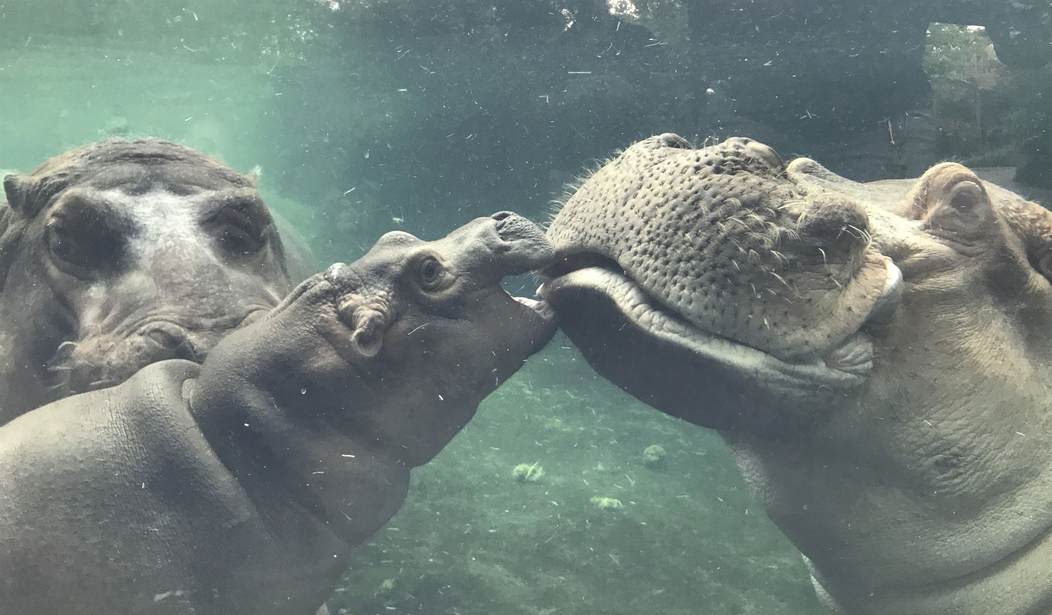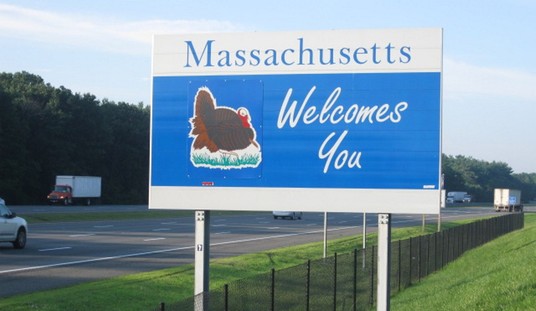On Tuesday, the South American country of Colombia began sterilizing hippos. Why hippos? These are cocaine hippos, imported in the 80s by drug lord Pablo Escobar as personal pets. They are not native to the area and are not only causing problems in the river systems but can actually be dangerous.
Colombia on Tuesday began the sterilization of hippopotamuses, descendants of animals illegally brought to the country by late drug kingpin Pablo Escobar in the 1980s.
Two male hippos and one female underwent surgical sterilization, environmental authorities said. It is part of a larger government effort to control the population of more than 100 of the mammals that roam around unsupervised in some rivers.
The plan includes the sterilization of 40 hippos a year, transfer some of them to other countries and possibly euthanasia.
Here's the problem: Hippos are big, ill-tempered, tough, and they are breeding rapidly for a megafaunal species; it turns out that the Magdalena River basin, where most of these beasts live, is an ideal habitat for the African animals.
Sterilization takes time, because spotting and capturing the territorial, aggressive 3-ton animals is complicated, David Echeverry López, chief of the environment office in charge of the plan, said in a video distributed to the press.
Rain events around the area have complicated efforts to capture the animals. More grass means “they have an oversupply of food, so baiting them to capture them becomes even more complicated,” Echeverry said.
The government estimates there are 169 hippos in Colombia, especially in the Magdalena River basin, and that if no measures are taken, there could be 1,000 by 2035.
It's easy to understand Colombia's concern; in Africa, hippos actually kill over 500 people a year.
As far as this sterilization effort, allow me to make a prediction, based on my early education in field zoology: These efforts will fail, and the hippos will continue to breed and expand their range. The younger ones, as they seek new territories, will expand into neighboring river basins; some of them will become megafaunal Hippo Polos, seeking productive new places far and wide. If Colombia is serious about this, instead of trying to sterilize the beasts, they might try allowing local folks to hunt them, which has been proven for a few centuries now as an effective way of managing wildlife populations. I'm informed that hippo steaks can be very hippotizing. Or they could try driving them into confined areas by playing music; hippo-hop might work. It's just a hippo-thesis, of course. I'm not sanguine about the math here, though, as far as sterilization is concerned. Forty beasts a year, given the 169 (assuming that's even close to accurate), might work out to at least bring the population under control, but so far, Colombia has only managed to capture and alter two males and one female.
It is belaboring the obvious, of course, to point out that the females are the ones that have little baby hippos. If you know hippo behavior, you know that one dominant male generally mates with all of the females in a given herd. Colombia can forget the males; the females are the critical beasts.
The introduction of invasive species rarely goes well, not that Colombian drug lords are, as a rule, overly concerned with local ecology. But even the United States government seems determined to stick its oar into local environments, re-introducing certain species into areas that have changed dramatically since those animals originally roamed the territory. That, likewise, is a bad idea.
At least they are cocaine hippos and not cocaine bears.














Join the conversation as a VIP Member